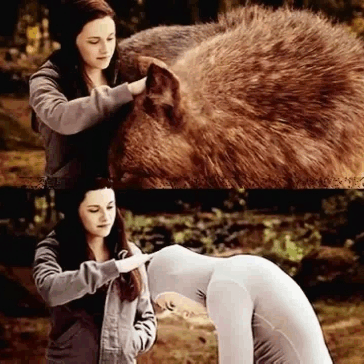Hamish MacPherson is a choreographer and performer who works with movement, words and pictures to make performances, interventions, workshops and other things. These are some of my thoughts and things that interest me.
Don't wanna be here? Send us removal request.
Text
Make your interests gradually wider and more impersonal, until bit by bit the walls of the ego recede, and your life becomes increasingly merged in the universal life.
Nobel laureate Bertrand Russell, who lived nearly a century, on how to grow old.
158 notes
·
View notes
Text
“Attention: deep listening. People are dying in spirit for lack of it. In academic culture, most listening is critical listening. We tend to pay attention only long enough to develop a counterargument; we critique the student’s or the colleague’s ideas; we mentally grade and pigeonhole each other. In society at large, people often listen with an agenda, to sell or petition or seduce. Seldom is there a deep, open-hearted nonjudgmental reception of the other. And so we all talk louder and more stridently and with a terrible desperation. By contrast, if someone truly listens to me, my spirit begins to expand.”
— Mary Rose O’Reilley, Radical Presence: Teaching as Contemplative Practice (via whentherewerebicycles)
12K notes
·
View notes
Text
Sexy dancers get old
“You master a text not by solidifying its internal logical structure, but by knowing and loving your audience, even to the point where, as in Phaedrus, you can convince them to want to sleep with you. Rock’n’roll figured this one out a long time ago.
But rock stars also die young. Or they become fat, they become bloated, they become depressed with age. On the one hand, the scale of amplification of their symbolic output is nearly impossible to reverse, and on the other they are tied to a form of symbolic production structured around youth and vitalism and libidinal surplus that is impossible to sustain with age. The human heart is the most banal metaphor for love, but is also a physiological timekeeper. Many athletes suffer from a condition where the heart swells to become too large as a result of overexertion. Essentially, even if you are a marathon runner fully endowed with the endurance and stamina to run enormously long distances with ease each day, your body will nevertheless collapse after some time. And yet, it remains extremely hard for athletes and trainers to identify when the limit to overexertion has been reached, as the tearing of muscle tissue is likewise the prompt for the muscle to grow and become stronger. Pheidippides ran from Marathon to Athens, where he collapsed and died to deliver a message of victory in the form of a single word: νικῶμεν (victory).”
Brian Kuan Wood ‘Is it Love?’ e-flux Journal #53 - March 2014
1 note
·
View note
Text
How is Care Ethics similar to Utilitarian Ethics?
Utilitarian ethics: an action is right if it leads to the most happiness for the greatest number of people.
Care Ethics: an action is right if one adapts their response to the context and how this response can impact others
I can see how it could seem similar, since both these ethics can have similar results and are pretty pragmatic.
However, as Marx would say himself, Utilitarianism doesn’t take into account what “happiness” means for each person, whereas Care Ethics always takes into account this variable. Utilitarianism is rooted in the idea of universal standards, whereas Care Ethics emphasizes context and individuality in its response. Yet, you could argue that Care Ethics imply a maxim of “universal adaptability”.
According to Bentham’s principle of utility, there is a fixed definition of pleasure and pain that can be quantified and used to decide which action is right according to utilitarianism. In Care Ethics, however, there is no fixed definition of either, so the outcome is dependent upon the context.
Yet, in an abstract moral experiment, it’s probable that the outcome of both perspectives ends up being the same, since the context of the experiment isn’t known.
In the Trolley Problem, an utilitarian response would be: kill the one person to save the five others chained to the tracks, because it would maximize pleasure and minimize pain. The Utilitarian problem doesn’t take into account the fact that the 5 people might gladly give their lives for the 1 person chained to the tracks. It doesn’t take into account the fact that the 5 people might be war criminals.
If you use the perspective of the ethics of care, you might end up with a different outcome. The ethics of care emphasizeinterdependency and context: are you related to the people chained on the tracks ? who stands to lose the most ? I’d argue that Care Ethics can’t give you an answer on this scenario because the variables aren’t known. What if the one person chained is a baby while the 5 others are its parents and grand-parents who would sacrifice themselves to see their child live ? This is the sort of information that is needed for Care Ethics. However, in most cases, empirical research shows that people would choose to sacrifice the one person tied to the tracks.
The thing is, it’s actually quite difficult to compare the two ethical perspectives because Care Ethics aren’t made to examine this kind of abstract experiment, they’re specifically made to adapt to real-life situations. Care Ethics aren’t made to give the same outcome for every scenario because every scenario is unique to the people it affects.
https://www.quora.com/How-is-Care-Ethics-similar-to-Utilitarian-Ethics
0 notes




























